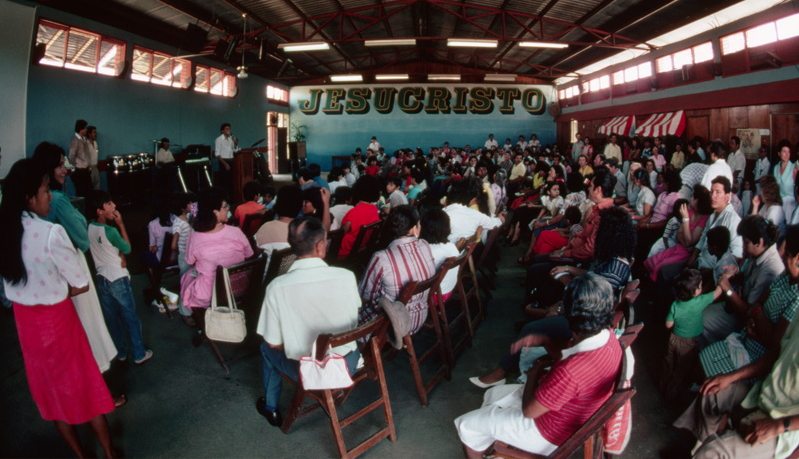
This article is the final in a serial release of information from the report "Faltering States and Growing Churches" published by the International Institute for Religious Freedom (IIRF). Click here for part one (Africa), click here for part two (Middle East), click here for part three (India), and click here for part four (China).
In the Latin American context, particularly in countries like Colombia and Mexico, there is sustained evidence of pressure and violence from criminal groups, traditionally concentrated in rural areas but increasingly extending into urban centers.
The violence stems not only from the presence of dominant criminal factions but also from conflicts and power struggles between them. This situation places increased pressure on the Church, negatively impacting religious activities.
Religious leaders crossing from one area to another risk being mistaken for informants.
Criminal groups often demand additional fees, and religious leaders crossing from one area to another risk being mistaken for informants. In cases where religious leaders have a high social profile, their attempts to negotiate truces or initiate dialogue with criminal leaders can make them targets of attacks from rival groups.
In Mexico, this has resulted in 46 killings, 250 Christian properties attacked, 745 believers forced to flee. Lawless Haiti saw 59 Christians murdered. And Cuba—where the government acts like a cartel though it isn’t—a spike in the number of arrests and sentences to 156 has been noted.
In Nicaragua, Catholic churches—and more recently, Evangelical churches— have faced a range of hostilities. Over the past three years, violations of religious freedom for political reasons have intensified, involving the full use of state mechanisms to silence and penalize religious leaders and parishioners identified or perceived as opponents of the government.
Tiny Nicaragua came third in the world top ten countries that arrested and sentenced Christian leaders.
This has led to the mass closure of places of worship, the arrest of numerous priests and pastors, and, in some cases, their expulsion from the country and the revocation of their nationality. Tiny Nicaragua came third in the world top ten countries that arrested and sentenced Christian leaders, with 226 incidents recorded.
In El Salvador, the situation is distinct. In 2022, there was an unprecedented surge in arrests of religious leaders and members of Evangelical churches. Those detained were predominantly pastors involved in rehabilitation programs for former gang members or former gang members who had joined a church.
This occurred in the context of the government’s strict anti-crime measures, which cast suspicion on pastoral work with ex-gang members and resulted in arbitrary arrests under the pretext of gang eradication. However, recent reports indicate a decline in such arrests, and with the overall reduction in violence and insecurity in the country, incidents of gang-related violence targeting the church have also significantly decreased.
Pray that such reductions will increase throughout these volatile parts of Latin America that threaten the well-being of the local church.
Previously published by International Institute for Religious Freedom. Republished with permission.
This commentary draws upon data available in the International Institute for Religious Freedom's Violent Incidents Database, which can be freely accessed at: https://iirf.global/vid/.
Dr. Ronald Boyd-MacMillan, serves as Chief of Research and Global Strategy at Global Christian Relief. He also is a Senior Research Fellow at the International Institute for Religious Freedom and a Research Associate at the Oxford Centre for Mission Studies. In addition, Ronald is Adjunct Professor of Practical Theology at Fuller Theological Seminary focusing on understanding and learning from the suffering church as well as visiting Professor of Practical Theology and Spiritual Formation at Lahore College of Theology in Pakistan.





